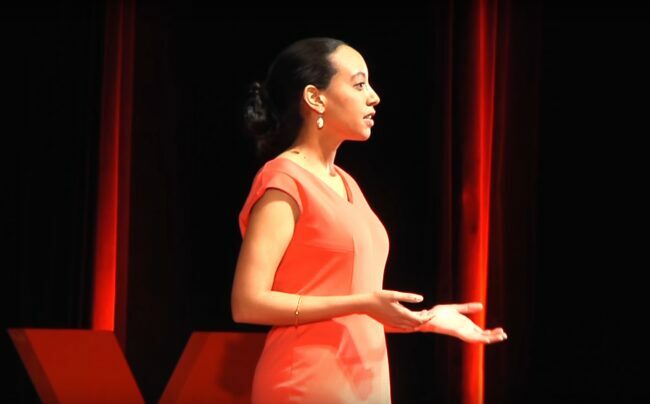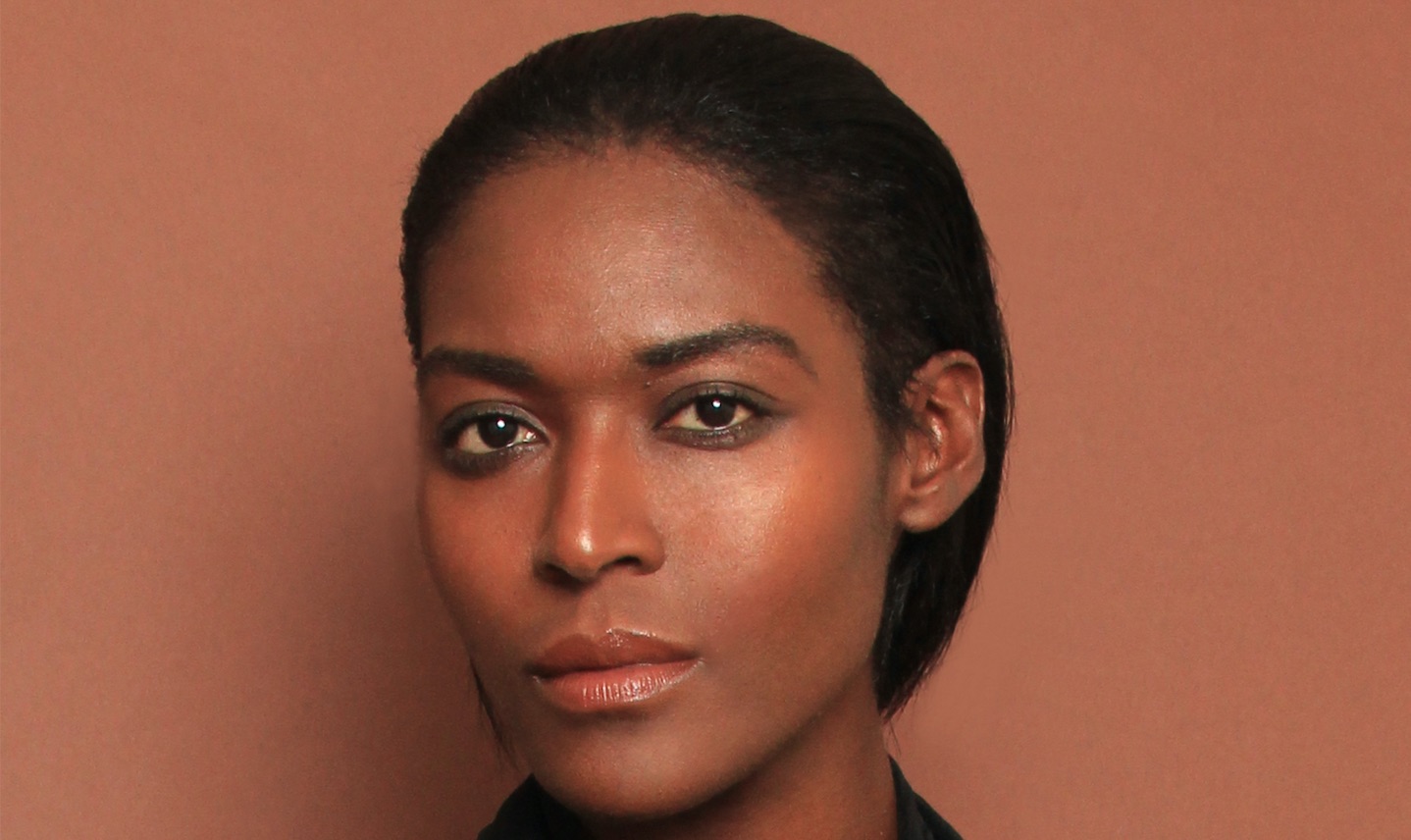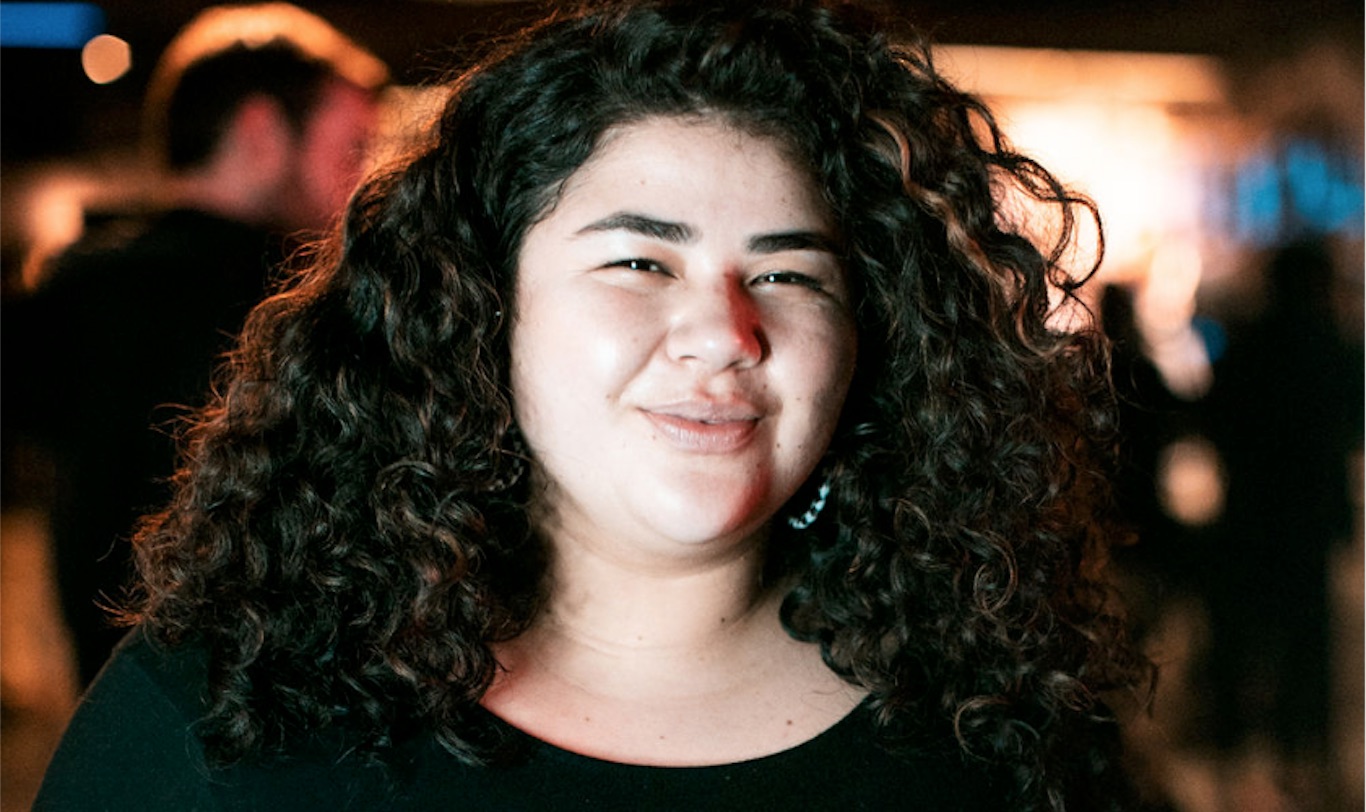
This article is part of an exciting series we launched in 2018 called Today’s Wonder Women – designed to celebrate the inspiring, impactful, empowering and extraordinary things ordinary women are doing every day. Over the coming months we will be sharing interviews, essays, articles and guest posts about women who are creating change. If you have a story to share and want to add your voice to the Today’s Wonder Women conversation, get in touch by emailing info@girltalkhq.com.
When you think of extreme athletes who are breaking barriers and setting new records, perhaps a male name immediately comes to mind, as if often the case when it comes to sports. But when it comes to extreme mountaineering, remember the names Tashi and Nungshi Malik, because not only are they female, but they are showing the world that extreme sports and outdoor adventure is definitely NOT just a “man’s world”. The twins hail from India and at the age of 28 have conquered summits most people can only dream of.
They are the first siblings and twins to climb the Seven Summits and reach the North and South Poles and complete the Adventurers Grand Slam and Three Poles Challenge. On 16 December 2014, Nungshi & Tashi scaled Mt Vinson in Antarctica, completing their ‘Seven Summits’ and becoming the World’s First twin sisters to conquer:
- May 2013: Mt Everest (World’s & Asia’s highest peak)
- Aug 2013: Mt Elbrus (Europe’s highest peak)
- Jan 2014: Mt Aconcagua (S. America’s highest peak)
- Mar 2014: Mt Carstensz Pyramid (Australasia’s highest peak)
- Jun 2014: Denali (N America’s highest peak; also world’s youngest and 2nd pair of twins to do so)
- Feb 2012 and 03 Jul 2015: Mt Kilimanjaro (Africa’s highest peak)
What makes their records even more exciting is that they are using their platform to raise awareness for the cause of the girl child and gender equality. Their background story and motivation to keep climbing higher in life (both literally and figuratively is nothing short of inspiring. They exemplify what it means to be Today’s Wonder Women.

When did you both form a love for the outdoors, travel and adventure?
Tashi: We have been exposed to outdoors from very early childhood due to our father’s military profession and his passion for outdoors. We started parasailing at age 7, tied with a shawl to our father’s back! We also did river rafting and skiing. Our serious engagement with mountaineering started soon after our 12th exams were over, when our father applied on our behalf for the basic mountaineering course at N.I.M, Uttarkashi. We haven’t looked back since. I decided to climb Everest because being the highest mountain peak, conquering it symbolizes my ability to dream big and to achieve it by combining passion with commitment. As Sir Edmund Hillary [the first person to summit Everest] put it, “We do not conquer the mountain, but ourselves”.
As you were growing up, who did you look up to as mentors or icons in the sporting world, and did you ever see anyone who looked like you both?
Tashi: Mountaineering is still largely a man’s world. Globally, women represent only a small percentage of all climbers. Also, if you look closely, nearly all the world’s ‘first ascents, fastest and most-number of times’ related records are in a man’s name. In the case of Indian women, this ratio was even worse especially up until the last 5-6 years. There seem to be several reasons for this. And gender issues operate even in western societies, even if far lesser than ours.

Nungshi: The gender ratio and age structure on Everest has been shifting since the first ascent in 1953. Men still outnumber women, but women are increasing in proportion. Between 2000 and 2005 women comprised 10% of total climbers and now we assume that it may be around 20 percent. There are not many studies on this subject but we did read some interesting insights through published research . In our case, given our socio-cultural and economic context, girls are certainly not allowed to participate in or discouraged from sports, especially outdoor sports which are very dangerous and expensive, such as mountaineering.
India itself is not an outdoor nation and I think until the eighties, Indian women were mostly absent from outdoor world. With a few mountaineering firsts (such as first Indian woman to climb Everest in 1985) change started happening and today it seems as if the floodgates have opened. Dozens of women have climbed Everest, several women have made mark in other outdoor sports such as para-jumping, boxing, wrestling, athletics and pretty much every outdoor sports. Having said that, most Indians still see outdoor sports and especially mountaineering as a ‘man’s thing
In just last 2 years, some of the great world’s firsts have been achieved by young Indian girls. In 2010, Krushna Patil had become youngest Indian woman to climb Everest at 19. Apart from us setting a world record as first twins to scale Everest in 2015, Arunima Sinha became first female amputee to reach Everest that same year. We have set 10 new world records as twins or siblings. In 2014, Malavath Poorna became youngest female in the world to summit Everest when she was only 13. It is surely going to inspire many more girls and women to aim for some fine mountaineering feats in coming years. In case of Indian women, the large part of the motivation is of course ‘to make a point’ in a society that views women as inferior, less welcome and less deserving of equal opportunities.

When did you decide to start taking on some of the most difficult extreme climbs in the world together?
Nungshi: One factor particularly influenced our decision to scale Everest. Right from the Basic mountaineering course we took in 2009, we liked the outdoor adventure, the group energy, the physical and mental challenges, a sense of greater self discovery and high self esteem associated with successfully completing arduous, demanding tasks. It was so very different than the typical class room learning and less challenging physical activities that our school and college life offers. And being girls in predominantly male dominated courses it tremendously boosted our pride and sense of achievement. We obtained highest possible grade in all courses and during each of our trainings, our instructors were very impressed with our grit and motivation, and would often say, “you two should climb Mt Everest” and started jokingly calling us ‘the twin Everesters’. This sowed the seed of the idea in our mind. Within ourselves though we knew that eventually we would prevail, and at whatever cost.
You are the Guinness record holders as the first twins to summit Mt. Everest but you didn’t stop there. You are also the first siblings and twins to scale the Seven Summits. Why did you decide to continue climbing these high peaks?
Tashi: When we were preparing for the Everest climb scheduled for May 2013, the 2012 Delhi gang rape which involved rape and fatal assault on a young girl outraged and shook the conscience of the whole nation. We too were extremely angry and wanted to do something tough and big to make a statement that girls are as strong and capable as boys and break some of the stereotype images of girls. At the same time, there are frequent cases of female feticide and infanticide. This practice has led to serious imbalance in gender ratio in many parts of India in favor of males. Dad’s native state of Haryana is one of the worst affected. So we were toying with the idea of doing something really tough and big, but were not sure what it would be. At that time we were not even aware of what the Seven Summits were.

Nungshi: In normal circumstances, it was quite likely that we would have stopped serious climbing after Everest, at least for some years until completion of higher studies. But the Delhi rape incident fanned the inner rage to go beyond Everest and do something even more courageous and enduring. Having met and discussed with accomplished mountaineers, we learnt that Seven Summits is considered a very respectable achievement among mountaineering community. When we succeeded in summiting Everest, we became quite motivated about doing the Seven Summits. A key factor in deciding to do this was when we learnt that if successful, we would be the world’s first siblings and twins to complete the Seven Summits! We sensed the opportunity to utilize the media attention to such an accomplishment as a medium to campaign for gender equality and fight against female feticide.
Other than setting records, why were the Seven Summits important to you both personally?
Nungshi: While we spent nearly seven weeks at the Everest base camp acclimatizing and waiting for the window of opportunity for the final summit push, we met nearly 700 other climbers. During this period we were exchanging ideas and experiences, seeking advice and exploring climbing opportunities in other parts of the globe. It was during one of these conversations, that we came across few mountaineers who were on their Seven Summit journey and Everest was their last of the circuit. We were quite excited about the idea and since in our case Everest was our 2nd peak of the Seven Summit circuit (earlier we had climbed Mt Kilimanjaro, the easiest of all), we had decided that if we succeeded in scaling Everest, we were even better prepared to take on the Seven Summits.
From earlier days in our life, we had become acutely aware of the ‘daily mountains’ being faced by millions of our girls, especially in villages. Mountains of denial of basic human rights and even the right to life. We always wanted to do something for their cause and saw in #mission2for7, a great opportunity to show case their issues and bring a sense of pride in being girls. God has been very kind and we have made it to the top of the highest peaks in six continents in our first attempts. And all this, without any serious injuries or bodily harm.

What were the challenges you faced before the Mt Everest climb? Gender discrimination was always operating, albeit invisibly at times. And the hurdles operate at many levels. The society views mountaineering and the outdoors as a ‘boys’ thing’, and girls taking it up is frowned-upon. Then there’s the risk to life and limb, which in case of girls is a much greater concern for parents. Our parents were often cautioned by friends and relatives, “If the girls get injured or lose a limb, who will marry them?”. Several medical issues such as periods are a particular challenge. We recollect while attempting Everest, our worst fears came true as periods started just the evening before we were to leave for the summit bid! With mounting cramps and absolutely no way to change sanitary pads, we labored on for 21 hours to reach the summit and return to the safety of Camp 2 at some 23,000 ft. In our case we have additional challenge of poor eye sight and have to use power glasses. These easily get foggy and pose huge problems of fitting in with all other extreme climate gear over the head and the face. In fighting these hurdles, it is a definite advantage to be together as sisters. There’s an inbuilt safety mechanism.
What kind of sexism have you faced in the sport of mountaineering?
Tashi: Serious mountaineering is as much about mental robustness as about physical strength. And it is not about pitching a woman against a man in a physical contest. It is about perseverance under extreme odds. In extreme mountaineering, there’s a thin line between life and death. Every time climbers go into the mountains, they put themselves at risk. Both men and women climbers face the same challenge. In this sense we certainly do not see it as male forte. But biological norms such as menses may make it more challenging at times.
Nungshi: We agree that more men pursue this sport and most of the ‘first ascents’ are in their names. But we see this as a product of gender discrimination against women though the ages. We have found mountaineering particularly favorable to women as they are mentally and emotionally very strong and biologically better placed to survive in extreme cold. On average, we have performed better than most male climbers in our teams. In the beginning most people were aghast. Many would express sarcasm and their “advice” was meant to create fear rather than confidence in our dreams. “Do you realize you are a girl? What if you lose a limb? How will earn your living from such stupid passion, your parents are really imprudent in letting you on this path” they would say to us.

Along with your world adventures and records, you are also very passionate about empowering girls through your #mission2for7 project. Why is this cause important to you?
Nungshi: #Mission2For7 (scaling the seven summits) was meant to be a starting point for our work on three fold vision: Through our achievements, promote mountaineering as a sport in India, encourage the Indian girl child to dream and achieve, and to win on behalf of all girl children. We saw it as the beginning of a life long journey for social good. At the end of it, one of our goals was to start the NungshiTashi Foundation to focus all our girl empowerment activities through one organization.
Tashi: So far we have delivered over a hundred talks to schools, colleges and universities, as well as to as many social and governmental organizations working on gender issues. We have also had appearances on TV news, live talks, had features written and stories on our mission in almost all of India’s major national and vernacular print and electronic media. By conservative estimates, I think our story reached at least 300-400 million Indians and would have impacted many of them, especially parents with only daughters, as well as millions of girls themselves. This is also borne out by the numerous calls, messages on social media and letters that we receive from all parts of society expressing immense joy and pride at what we have accomplished as girls.

What is your message to young girls who want to follow in your footsteps and become mountaineers?
Tashi: Many aspiring climbers in India have asked us about career options in mountaineering. And we have been very candid. At present, there is very limited scope of professional growth and the chance of decent earnings, unless if you start your own entrepreneurship and make it a success. There are only a few professional climbers in India, and none world famous or financially well off. The public at large does not see it as something rewarding unlike other sports. This is compounded by the government’s lack of policy for development of mountaineering as a sport. Some states even have it under tourism ministry.
Nungshi: We hope that by our global level achievements and world records, the sport will get due attention and respect. Plus we are trying to also glamorize it to draw corporate sponsorships.
Tashi: We do encourage all budding climbers to follow their passion and dreams. Life has taught us is that if you follow your dream with all the commitment it takes, you will succeed. It may take its time and may test your limits many times over, but if you persevere you will eventually realize your dream. In this process, no matter how many mistakes you make or how slow you progress, you are still way ahead of everyone who isn’t trying.

You are both ambassadors for India’s “Save Girl Child” campaign. Why did you get involved in this?
Tashi: In January 2015, the Prime Minister of India launched the high profile ‘beti-bachao’ (save girl child) campaign across the country. This reflects the serious imbalance in sex ratio in favor of males in many states of India, especially in the central, western and northern regions. Our own native state, Haryana, is the worst hit due to strong preference for sons and consequent wide spread practice of female feticide.
Nungshi: Our #mission2for7 and now mission #UnchaiyonSeAage (completing Explorers Grand Slam which includes seven summits and ski to North and South Pole) was inspired by the cause of the Indian girl child and we see big opportunity to do our bit as brand ambassadors for beti-bachao campaign in Uttarakhand state. By our world record feats in mountaineering, an area demanding extreme physical and mental capabilities and very high degree of risks, we want to show that girls can compete on equal footing with men even in areas traditionally dominated by men. We want to shatter some of the stereotypes about girls. By our achievements and the consequent media interest, we want to send the message of gender equality.

Empowering the girl child often rests on the parents and their involvement. Can you tell us about how your parents have encouraged you both in your education and sporting careers?
Nungshi: Our father inspires us for his initiating us into mountaineering, regular mentoring and to help us realize our full potential. While most parents talk “goals” with their children, dad discussed “vision of life” with us. Over the years, we have become more friends than the usual parent-child relationship. After our 12th year in school when most parents are busy hunting best colleges for their children’s admissions, dad encouraged us to do a Bachelor’s degree by correspondence so we could pursue other activities at the same time. So we enrolled in a Bachelor’s degree through distance education at Sikkim Manipal University. This decision allowed us the time to do so many mountaineering courses. In all this sense, our father has been our biggest inspiration in life, despite the fact that he hails from a very conservative rural part of the state of Haryana. He was born after his three sisters, with numerous prayers by his parents at many religious places. (In fact, according to the local tradition, the family announces the birth of male child by hitting a ‘thali’ with steel spoon making sounds like a ringing bell at the door, indicating joy and celebration. But there is ‘silence’ at the birth of a girl child).

He recollects how he was always given preferential treatment over his sisters and how he grew up with the wish that he too should have a son. But as he grew up and with education realized that one of India’s future challenges will be rapid population growth and rampant gender discrimination, he had already resolved to have not more than one child. And he would definitely prefer a daughter. After marriage, having discussed with our mother, they decided that if first child is boy, they would adopt a girl. If first child is a daughter, that is perfect. He thinks that God listened to his genuine desire and blessed him with two daughters. But the matter did not end there, despite her earlier decision, our mother, even more so our father’s parents, our mother’s parents and the society in general started putting pressure to ‘try for a son’. Enraged and fed up, one fine day, without even our mother’s knowledge or concurrence, our father went to the local military hospital and got a vasectomy. He then announced “I can no longer produce a child”. All his family were deeply hurt, his mother cried for several days and would often remark “is that what we get for educating our children?” Much later, of course, every one admired and praised him for his courage and wisdom. In our family, therefore, we have never felt disadvantaged at being girls. In fact, issues of dreams, careers and life’s pursuits are never discussed in terms of boys and girls but simply in terms of humans and persons.

What is that one thing that you have learned from Mountains?
Nungshi: Mountains have taught us to be humble. Without the mountain, we wouldn’t have wanted to leave home, and see other mountains. This place inspired us to enjoy the outdoors and care about the environment. Without it, we would not be one iota of the person we’re today. This place is everything and it’s worth much more than a million bucks that the bank says it’s worth. It is worth the billion memories that shaped the lives of the people that spent their time here. Normally a proximity to danger makes people contemplate their life.
Tashi: Extreme mountaineering has been more of a spiritual awakening for us. It is for us a total revelation, a deep inner change. The narcosis of the altitude, the adrenaline of the ascent and the fascination we’ve found in the challenges of high mountains, drive us to push our limits even further. The ascent to the ‘Roof of the world’ or chomolungma, as it is called in Tibetan language, has been a spiritual one. We have always viewed our relationship with the mountains with a deep sense of humility and in our eyes walking our way up to the summit is synonymous with an inner journey. Mountain climbing has helped us see the bigger picture of life because we realize how fragile and precious life can be

We love celebrating ordinary women who are doing heroic things in the world. What would you say your superpowers are?
Tashi: climbing Everest was a personal dream. But #mission2for7 was inspired by our concern for the girl child and gender equality issues in the country. While at Everest base camp for over 7 weeks we often discussed with each other on how to combine our passion for mountaineering with a much bigger purpose, so that our achievements do not benefit only us but our society at large. The greatest joy we ever have is when we see positive influence of our actions on others. We liked the idea both to pursue our passion to the hilt, as well as for its social value: to inspire girls and women to dream and exceed their goals.
Finally, what makes you both powerful women?
Tashi: There’s a saying, “Seeing is believing”. By our world record feats in mountaineering, an area demanding extreme physical and mental capabilities and very high degree of risks, we want to show that girls can compete on equal footing with men even in areas traditionally seen as ‘men’s forte’. And by this, we want to shatter some of the stereotypes about girls. By our achievements and the consequent media interest, we want to send the message of gender equality and the fight against female feticide. Additionally, we deliver gender related talks at schools and social forums to directly appeal to parents and stakeholders to change their ‘angle of vision’ and see the girl child as a most trusted source of love, joy, progress, and strength.


















One thought on “Meet The Indian Twins Setting Mountain-Top Records All In The Name Of Gender Equality”